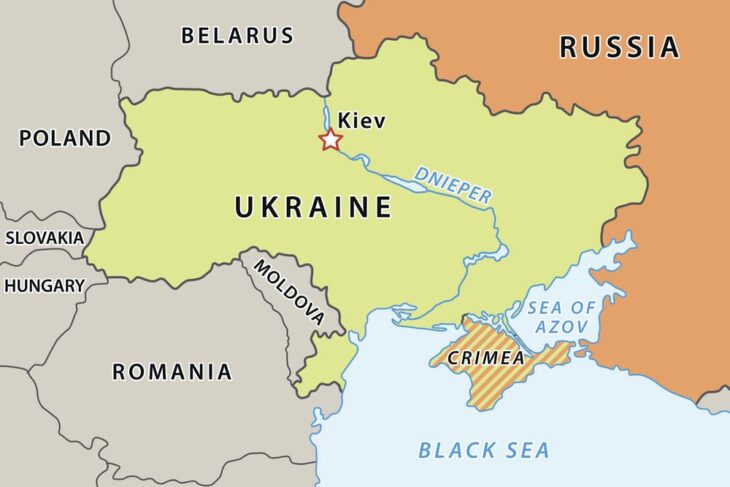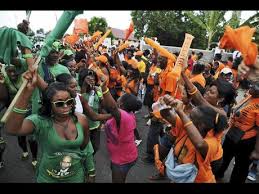Jamaican farming is crucial. There is no other way to put it. Farming is one of the nation’s key pillars. The sector employs thousands of people directly (and an even greater number indirectly) and is, as anyone who understands nations knows, a lynchpin in either the survival or downfall of our country.
This can be seen in the fact that our growth targets for last year were negatively affected due in no small part to the woeful state our farming industry found itself in during and after the many showers of rain. With farming now being asked to carry a large portion of the economy (domestic consumption to increase, tourism to really begin and exports to be increased) and with all economic forecasts factoring in a strong farming sector, it is clear that something needs to be done if we are to do this.
Farming in Jamaica today is done in one of two ways. The first is that of the small farmer. Everyone knows about small farmers, they have a couple of acres of land (maybe 10 at a maximum), some hired help for planting and reaping, and sales in the market (or to the middlemen and vendors). They generally make small to non-existent profits, although they are able to feed themselves and meet the necessities (school, medical care etc).
On the other hand are the large farm holders. They come in the form of family farms (Bakra) and in the shape of private companies. These farms are generally geared towards mass export and supplying the supermarkets (which are generally overpriced) and more often than not make handsome profits at the end of the accounting year.
These two types of farming have been the mainstay for decades. They didn’t serve us well then, and they don’t serve us well now. On the one hand, one has constant gluts and shortages in the market when it comes to certain products, a situation which helps no one (though some suffer more than others) and on the other hand one has products either out of the price range (how often has one gone to market and cried at the price of limes for example?) or just exported. Such a system cannot be expected to provide any consistent form of economic stability and a real re-think is needed in how we do our farming.
Now, one cannot do away with the large farm holdings. They pay taxes, are current with their bills and so on. But one can address the topic of small farm holders, and it is there that the real agricultural revolution may take place. The small farm holders are not, for the most part, scattered far apart. They are generally located together (in a loose cluster) and more often than not grow the same produce. If these small farmers were to pool their land and resources, then they would be able to, I believe, meet the demands of the state and the challenges that lie ahead.
The pooling of land is not a new concept as we all know, however it is far from the ancient or backward way that many people fear it may be. Cooperative farms have and continue to exist and flourish in many a nation, and there are a few already here too.
It is an aspect that many Jamaican farmers are familiar with (if only in the financial area). The few co-op farms that we already have here, while not making eye-watering profits, do still manage to make profits and see all of the stakeholders’ benefit.
This aspect of farming would also go a long way towards eliminating gluts and shortages in the market. Gluts and shortages have the horrible tendency to benefit no one (though consumers gain from gluts in the short term) while affecting all, in the long run. Collective farming would address this as the farmers in each cluster would know what is being farmed where, and act accordingly.
With the elimination of gluts and shortages, the small farmer (who becomes collective) would benefit financially as produce would no longer rot on the vine (or be sold for below market rates) and the consumer would benefit by a gform of price stability.
Collective farming would also allow the former small farmers easier access to finance in order to modernise their enterprise. Farming in Jamaica is done in backward ways, that were obsolete some fifty years ago and that play no small part in why small farming in Jamaica is so inconsistent and prone to massive failures such as last year.
Collective farming and the finances it can open up could actually allow for improved land tilling which would allow for greater product consistency. It would also allow for improved irrigation, improved pest management and improved harvesting. As things stand right now, most individual small farmers would not be able to access these benefits, but if brought into a collective system, a commune, then they could access all of these through grants and loans.
It is true that commune and collective land ownership has been tried in Jamaica before and met disastrous outcomes. People who just wanted land, a quick buck, people who never really had the deep desire for farming and were just plain saboteurs (domestic and foreign) all led to the collapse of the dream and its then slogan ‘Eat what you grow’. However, it could, I believe, be fine-tuned to work in a better way: if the land grants and funding were directed specifically to the small farmers, if a serious education drive with those farmers takes place and if the government actively assists them for a five-year period then there is a real possibility that these small individual farmers could become large thriving communes/collectives.
This type of farming would be ideal for both local consumption and the tourism sector. A long-standing issue is that foods consumed in that industry are by and large imported products and our local farmers lose out on that market. If they were to collectivise and streamline their production, then they would be more than capable of fulfilling the needs of the local consumer while at the same time having enough to dip into the lucrative market that is tourism.
Many say that communal/collective farms cannot work and they usually point to the USSR (even though it was a wheat exporter) as the prime example of why they cannot work. However, that is shallow thinking as it overlooks the fact that small/family farms are already of the collective/communal model, just on a micro-scale. That blinkered view also overlooks the Kibbutz in Israel which have continually flourished and are now major exporters (on occupied lands).
The simple facts are that this type of farming can be done. It can and must be done. Farming is in our bones (even the born and bred city dweller) and those lands mean more to the owners than we can fathom.
Collectivisation and communal farming is, in my estimation, the best way to ensure that the current small farmers keep their land, make a decent living and feed the nation. To do anything otherwise would be criminal. Doug Middleton Authentic Jersey




brilliant article